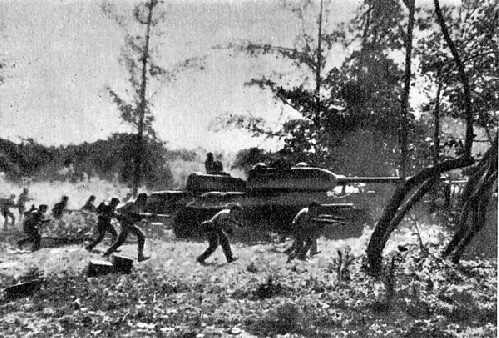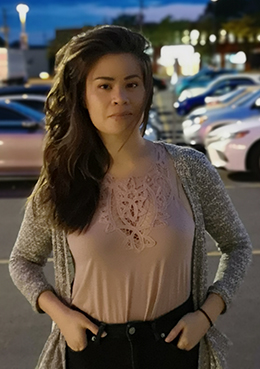This piece was reprinted by OpEd News with permission or license. It may not be reproduced in any form without permission or license from the source.
Republished from Rising Tide Foundation

Attack near Playa Giron. April 1961.
(Image by Wikipedia (commons.wikimedia.org), Author: Rumlin) Details Source DMCA
"There is a kind of character in thy life, That to the observer doth thy history, fully unfold." - William Shakespeare
Once again we find ourselves in a situation of crisis, where the entire world holds its breath all at once and can only wait to see whether this volatile black cloud floating amongst us will breakout into a thunderstorm of nuclear war or harmlessly pass us by. The majority in the world seem to have the impression that this destructive fate totters back and forth at the whim of one man. It is only normal then, that during such times of crisis, we find ourselves trying to analyze and predict the thoughts and motives of just this one person.
However, in order to assess such situations, we cannot lose sight of the whole picture, and righteous indignation unfortunately causes the opposite to occur. Our focus becomes narrower and narrower to the point where we can only see or react moment to moment with what is right in front of our face. We are reduced to an obsession of twitter feeds, news blips and the doublespeak of 'official government statements'.
Thus, before we may find firm ground to stand on regarding the situation of today, we must first have an understanding as to what caused the United States to enter into an endless campaign of regime-change warfare after WWII, or as former Chief of Special Operations for the Joint Chiefs of Staff Col. Prouty stated, three decades of the Indochina war.
An Internal Shifting of Chess Pieces in the ShadowsIt is interesting timing that on Sept 2, 1945, the very day that WWII ended, Ho Chi Minh would announce the independence of Indochina. That on the very day that one of the most destructive wars to ever occur in history ended, another long war was declared at its doorstep. Churchill would announce his "Iron Curtain" against communism on March 5th, 1946, and there was no turning back at that point. The world had a mere 6 months to recover before it would be embroiled in another terrible war, except for the French, who would go to war against the Viet Minh opponents in French Indochina only days after WWII was over.
In a previous paper I wrote titled "On Churchill's Sinews of Peace", I went over a major re-organisation of the American government and its foreign intelligence bureau on the onset of Truman's de facto presidency. Recall that there was an attempted military coup d'e'tat, which was exposed by General Butler in a public address in 1933, against the Presidency of FDR who was only inaugurated that year. One could say that there was a very marked disapproval from shadowy corners for how Roosevelt would organise the government.
One key element to this reorganisation under Truman was the dismantling of the previously existing foreign intelligence bureau that was formed by FDR, the Office of Strategic Services (OSS) on Sept 20, 1945 only two weeks after WWII was officially declared over. The OSS would be replaced by the CIA officially on Sept 18, 1947, with two years of an American intelligence purge and the internal shifting of chess pieces in the shadows. In addition, de-facto President Truman would also found the United States National Security Council on Sept 18, 1947, the same day he founded the CIA. The NSC was a council whose intended function was to serve as the President's principal arm for coordinating national security, foreign policies and policies among various government agencies.
In Col. Prouty's book he states,
"In 1955, I was designated to establish an office of special operations in compliance with National Security Council (NSC) Directive #5412 of March 15, 1954. This NSC Directive for the first time in the history of the United States defined covert operations and assigned that role to the Central Intelligence Agency to perform such missions, provided they had been directed to do so by the NSC, and further ordered active-duty Armed Forces personnel to avoid such operations. At the same time, the Armed Forces were directed to "provide the military support of the clandestine operations of the CIA" as an official function."
What this meant, was that there was to be an intermarriage of the foreign intelligence bureau with the military, and that the foreign intelligence bureau would act as top dog in the relationship, only taking orders from the NSC. Though the NSC includes the President, as we will see, the President is very far from being in the position of determining the NSC's policies.
An Inheritance of Secret Wars"There is no instance of a nation benefitting from prolonged warfare." - Sun Tzu
On January 20th, 1961, John F. Kennedy was inaugurated as President of the United States. Along with inheriting the responsibility of the welfare of the country and its people, he was to also inherit a secret war with communist Cuba run by the CIA.
(Note: You can view every article as one long page if you sign up as an Advocate Member, or higher).





